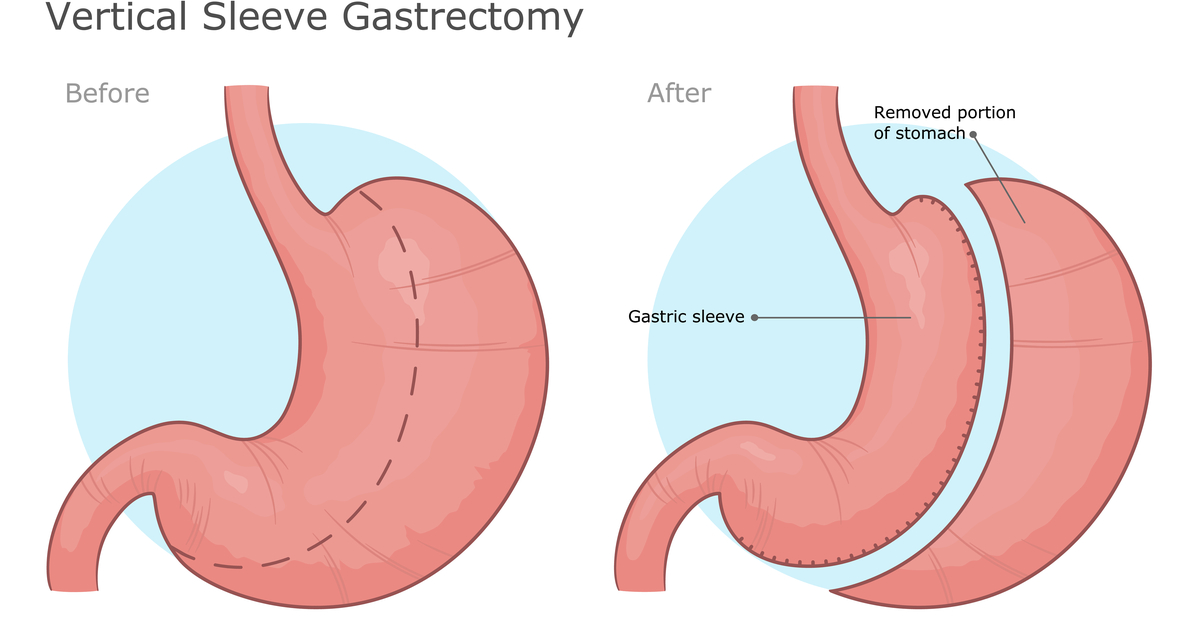Sleeve Gastrectomy: What You Need To Know
One reason many individuals choose gastric sleeve surgery over other forms of weight loss is that diets and exercise and other methods aren't working. Despite putting in countless hours and doing your best to stick to a diet, you may not be seeing the results that you need. Gastric sleeve surgery may be able to help. To help ensure you understand the surgery and how it may change your eating habits afterward, here's everything you need to know about sleeve gastrectomy.
What Is a Gastric Sleeve?
Gastric sleeve surgery involves removing a part of your stomach. It's a major surgical procedure that will result in a smaller stomach. When the excess stomach is removed, the surgeon then ties the remaining stomach together to form your new stomach. This new stomach is about the size of a banana. It's this new size that is considered a sleeve.
The benefit of having a smaller stomach is that you'll feel full a lot faster. Part of the reason this happens is because of a hormone that is removed during the surgical process. That hormone stimulates your appetite and tells you to keep eating. In some cases, the hormone can malfunction and tell you to keep eating even though your stomach is technically already full. After its removal, you no longer have anything telling you that you need to keep eating. You'll simply feel full instead.
That being said, your eating habits will remain unchanged. Your first instinct may be to fill yourself with your favorite foods. This isn't always the best course of action. Your new stomach won't be able to handle it. You'll have to retrain your eating habits to match the size of your new stomach.
Gastric Sleeve Surgery Can Help You Lose Weight
One of the best things about a gastric sleeve is that it can help you lose weight. Because your stomach is smaller, your body will take in fewer calories. You'll be able to increase your caloric deficit and shed fat. You'll also feel fuller faster. This can prevent overeating.
Your diet becomes even more important after gastric sleeve surgery, however. Because you're taking in fewer calories, the calories you do take in have to matter. You can still become overweight after gastric sleeve surgery. However, by consuming the right diet, you can reach a healthy weight and achieve your weight goal dreams.
How Much Does a Gastric Sleeve Cost?
The price for gastric sleeve surgery differs from state to state. The average price is around $17,000. This is cheaper than a gastric bypass, which has an average cost of $27,000. One of the most exciting things about gastric sleeve surgery is that more insurance companies are willing to cover it as part of their policies. That's because the surgery is typically safe and often leads to successful results for weight loss. Since having a healthy weight means the individual is less likely to face health problems later in life, insurance companies want to promote an effective method for losing weight.
You should always speak with your surgeon beforehand, as well as your insurance company, to determine what costs you may face.
Who Qualifies for a Gastric Sleeve?
There are a few qualifications that candidates need to meet before they can be approved for gastric sleeve surgery. One of them is BMI. Gastric sleeve surgery is usually reserved for those who are considered to be morbidly obese. These are individuals who have a BMI score of 40 or higher. In some cases, those with a BMI of 35 or higher are also considered.
Besides your BMI score, another pressing factor is whether you suffer from some form of health ailment due to your weight. Type II diabetes is an example. Another health problem may be high blood pressure or sleep apnea. While you don't necessarily need a health ailment to be approved, it does improve your chances.
Surgeons will also consider your overall health to determine whether your body is able to physically endure the surgery. In some cases, certain health ailments may make major surgery risky. In this event, the surgeon may require you to lose some weight before the surgery takes place. By losing weight, you may become healthier and more able to endure the surgery successfully.
Finally, you need to be psychologically prepared. Gastric sleeve surgery isn't a get-skinny-quick scheme. It requires a lot of coaching to ensure you're ready to make the changes to your diet and exercise level to lose weight.
Gastric Sleeve vs. Gastric Bypass Surgery
There are some differences between a gastric sleeve and gastric bypass surgery. While the sleeve removes a portion of your stomach, a bypass creates a pouch. The pouch enables some food to go directly to your intestines instead of lingering in your stomach. It's similar to the sleeve in that the smaller pouch can only hold so much food. It makes you feel fuller faster.
It's mainly different in that gastric bypass surgery essentially staples a part of your stomach to form the smaller pouch, whereas a gastric sleeve is the remainder of the stomach that wasn't removed.
Gastric bypass surgery is geared toward those who are only mildly obese. Those who are too overweight for gastric bypass surgery tend to qualify for gastric sleeve surgery instead.
Diet Changes After Gastric Sleeve Surgery
After surgery, you won't be able to head to your local restaurant for your favorite meal. For the first week, you'll only be able to consume liquids. After that, you'll move on to soft foods and pureed foods for three weeks. Your stomach has to heal after the surgery. Solid foods can expand the stomach too much and may rupture the areas where the surgery occurred.
Improve Your Health and Weight Today
At 1020 Wellness, we have the meal kits you need for your stomach's health and to set you on the path to your weight goal dreams. Give our meal kits a try today.
|